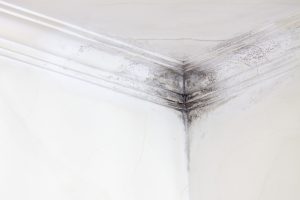 Mold can be a homeowner’s worst nightmare, causing significant damage to property and posing serious health risks. When faced with the challenge of a mold-related insurance claim, it’s crucial to understand the intricacies of the process and take the right steps to ensure a successful outcome. This comprehensive guide will equip you with the knowledge and strategies needed to navigate the complex world of mold damage claims, from identifying the problem to securing the rightful compensation.
Mold can be a homeowner’s worst nightmare, causing significant damage to property and posing serious health risks. When faced with the challenge of a mold-related insurance claim, it’s crucial to understand the intricacies of the process and take the right steps to ensure a successful outcome. This comprehensive guide will equip you with the knowledge and strategies needed to navigate the complex world of mold damage claims, from identifying the problem to securing the rightful compensation.
Recognizing the Severity of Mold Contamination
Mold is not to be taken lightly. It can wreak havoc on both the structural integrity of a building and the well-being of its occupants. Contrary to the dismissive attitudes of some insurance representatives, mold is a serious issue that demands prompt attention. The introduction of modern building materials and construction techniques has made structures more susceptible to mold growth, which can quickly spread and cause extensive damage to building materials, finishes, furnishings, and personal belongings. Mold exposure can also lead to a range of health consequences, from mild irritation to severe respiratory problems. Recognizing the gravity of the situation is the first step in taking appropriate action.
Initiating the Claims Process
The moment you suspect mold in your home or business, it’s essential to act swiftly. Call your insurance agent immediately to report the claim. Follow up the phone call with written documentation, such as a fax, email, or letter, to create a paper trail. In the case of a catastrophic event like a flood or pipe burst, getting a remediation team on-site within the first 48 hours can be crucial in preventing or containing mold growth. If you encounter any delays or resistance from your agent, insurance company, independent adjuster, or restoration contractor, be sure to follow up with additional written communications to document the unresponsiveness.
Gathering Comprehensive Documentation
Thorough documentation is key to a successful mold damage claim. Photograph and video record all affected areas, ensuring you capture the source and extent of water intrusion, as well as any visible mold contamination. Inventory all damaged property, and be cautious about discarding any items until they have been inspected or tested for mold content. Avoid exaggerating or speculating about the loss or value of any particular item, as this could be interpreted as a material misrepresentation and jeopardize your claim. If you don’t have receipts or other proof of an item’s value, explore alternative means of documentation, such as catalogs, statements from retail clerks, or appraisals.
Understanding Your Insurance Coverage
Before proceeding with your claim, thoroughly review your insurance policy to understand the coverages and exclusions. Locate the “declarations page,” which outlines the specific coverages, policy limits, and effective dates. Pay close attention to any endorsements or riders that may have been added to the policy, as they can significantly impact the scope of your coverage. Familiarize yourself with the policy’s fine print, including what is considered an insured event, what is excluded, and the steps you must take to prove your claim.
Protecting Your Property and Preventing Further Damage
Your insurance policy likely requires you to take reasonable measures to protect your property from further harm. This may involve turning off water sources, covering roof damage, or implementing other emergency procedures. While you should not make any permanent repairs until the insurance company has inspected the damage, you must act quickly to safeguard your property. Document any emergency actions you take, as the insurance company should cover the reasonable costs associated with these measures.
Navigating the Cooperation Requirements
As a policyholder, you have a contractual obligation to cooperate with your insurance company’s investigation and handling of your claim. However, this does not mean you must submit to unreasonable requests or allow yourself to be taken advantage of. Maintain a courteous and professional demeanor, but do not provide recorded statements, sworn statements, or a sworn “proof of loss” form until you fully understand your rights, the extent of your coverage, and the full scope of your claim. Be wary of insurers who make excessive demands for information or documentation, as they may be attempting to find grounds to deny or underpay your claim.
Seeking Expert Assistance
If you reach an impasse with your insurance company or require specialized expertise, don’t hesitate to seek professional help. Your state’s department of insurance or insurance regulator can provide valuable guidance on your rights and the industry’s obligations. Consider hiring a public adjuster, like Integrity Settlement Adjusters. When dealing with mold-specific issues, ensure you consult a qualified certified industrial hygienist (CIH) with experience in microbial contamination and testing.
Avoiding Pitfalls and Protecting Your Rights
Be vigilant in protecting your rights throughout the claims process. Never sign any release, waiver, indemnity, or “hold harmless” agreement without first seeking legal advice. Carefully review any estimates or offers from the insurance company or its “approved” contractors, as they may be biased or undervalued. Insist on obtaining multiple independent estimates to ensure you receive fair compensation for the full cost of repairs or replacement.
Navigating the Appraisal Process
If you and your insurer cannot agree on the amount of your claim, you may be required to submit the dispute to “appraisal,” a form of binding arbitration. While appraisal was initially designed as an informal resolution method, insurers have increasingly turned it into a complex and expensive process. If you find yourself in an appraisal situation, it’s advisable to consult with a policyholder attorney to protect your interests.
Staying Vigilant and Reporting Unfair Practices
Throughout the claims process, be diligent in documenting any unfair or unreasonable actions taken by your insurance company. Most state insurance regulators track policyholder complaints and compile “market conduct” reports on insurers’ unfair claim practices. Filing a formal complaint with your state’s regulatory agency can help hold your insurer accountable and potentially influence future policy decisions.
Navigating Deadlines and Statutes of Limitation
Be aware of all relevant deadlines and statutes of limitation that may impact your ability to file a lawsuit against your insurance company. Most property insurance policies have contractual limitation periods, typically one or two years, within which you must file a lawsuit. Consult with a policyholder attorney to ensure you understand these critical timelines and take appropriate action before the clock runs out.
Empowering Yourself for a Successful Mold Damage Claim
Navigating the complexities of a mold damage claim can be a daunting task, but with the right knowledge and strategies, you can successfully secure the compensation you deserve. By understanding your rights, documenting the damage thoroughly, and enlisting professional assistance when needed, you can overcome the challenges posed by insurance companies and ensure a favorable outcome for your mold-related claim. Remember, your persistence and attention to detail can make all the difference in securing a full and fair settlement.
Contact Us (954-292-4426) For a Free Consultation!
—
 About Integrity Settlement Adjusters
About Integrity Settlement Adjusters
Integrity Settlement Adjusters is a leading public adjusting firm dedicated to advocating for the rights of property owners in the aftermath of property damage and disasters. With a commitment to honesty, transparency, and professionalism, Integrity Settlement Adjusters assists you in navigating the complex insurance claim process to ensure fair and just compensation for your property damage. We work tirelessly to represent your best interests, offering personalized support and expertise every step of the way. By upholding the highest ethical standards and prioritizing client satisfaction, Integrity Settlement Adjusters has earned a reputation for reliability and integrity within the public adjuster industry.
> Learn More

 About Integrity Settlement Adjusters
About Integrity Settlement Adjusters